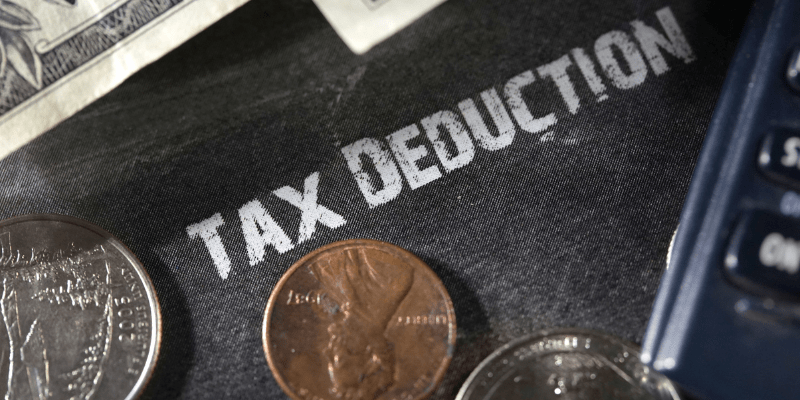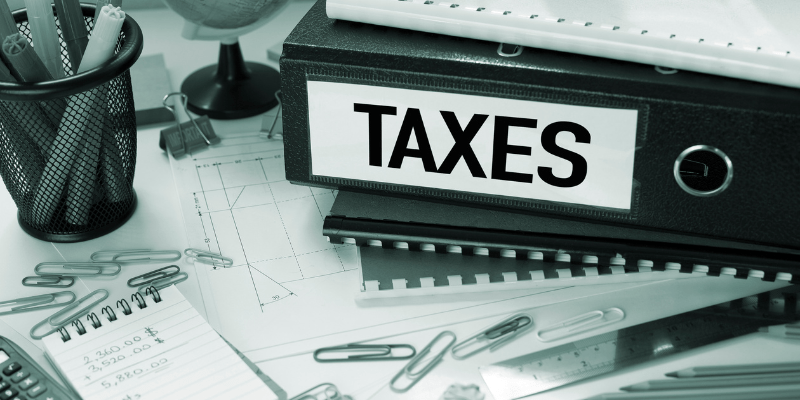Unlock the Tax Advantages of Owning a Residential Rental Property
Rental property owners in Fairfax County, Virginia have a unique opportunity to benefit from the tax advantages of owning residential rental properties. Tax laws are complex and ever-changing; however, there are still numerous benefits that can be realized through careful management of your investment portfolio. This blog post will provide an overview of some common tax deductions for residential rentals as well as strategies to maximize your own potential tax savings when investing in real estate in Fairfax County. Additionally, we’ll look at what investors with small portfolios should consider before taking advantage of these beneficial tax opportunities. Whether you’re looking for a professional property manager or simply trying to make sense out of the sometimes confusing world of taxes and investments, this post is sure to give you valuable insight into how best utilize any available tax advantages for rental properties!
Table of Contents:
- Tax Benefits of Owning a Residential Rental Property
- Tax Advantages for Investors with Small Portfolios of Residential Rental Properties
- Common Tax Deductions for Residential Rental Properties
- Commonly Overlooked Tax Implications for Residential Rental Properties
- Strategies to Maximize Your Tax Benefits from Owning a Residential Rental Property
- FAQs in Relation to Tax Advantages for Rental Property
- Conclusion
Tax Benefits of Owning a Residential Rental Property
Owning a residential rental property can provide numerous tax benefits, making it an attractive investment for many. Tax deductions, capital gains exclusion, and depreciation are just some of the advantages that come with owning a rental property.
Tax Deductions: Mortgage interest payments on your rental property are generally deductible from your taxable income. Additionally, you may be able to deduct any insurance premiums paid on the property as well as any local or state taxes associated with it. These deductions can help reduce your overall tax burden significantly.
Capital Gains Exclusion: When you sell a residential rental property at a profit, you may be eligible for capital gains exclusion if certain criteria is met. This means that up to $250k in profits (or $500k if filing jointly) made from selling the home may not be subject to taxation when filing federal taxes. This can save investors thousands of dollars in taxes over time and make investing in real estate more profitable than other investments such as stocks or bonds.
Depreciation: Rental properties also offer the advantage of depreciation which allows owners to write off part of their purchase price each year against their taxable income until they have fully depreciated the value of their asset over time (typically 27 ½ years). This helps reduce an investor’s overall tax burden by allowing them to take deductions for expenses related to maintaining and improving their investment properties even though those costs were incurred before they began renting out the unit(s).
By understanding the various tax implications associated with owning a residential rental property, investors can maximize their returns while minimizing their liabilities at tax time each year, ultimately leading to greater financial success in the future.
Owning a residential rental property can provide numerous tax advantages, from deductions to capital gains exclusion. However, investors with smaller portfolios of rental properties may also benefit from lower income taxes and increased cash flow.
Tax Advantages for Investors with Small Portfolios of Residential Rental Properties
Investors with small portfolios of residential rental properties may benefit from lower income taxes, increased cash flow, and reduced risk of losses due to the tax advantages associated with owning rental properties. Understanding the various tax implications can help investors maximize their returns on their investments.
Lower Income Taxes: Rental property owners are eligible for deductions that reduce taxable income, such as mortgage interest payments and depreciation expenses. These deductions can significantly reduce an investor’s overall taxable income which in turn reduces the amount of taxes owed each year.
Increased Cash Flow: By taking advantage of these deductions, investors can increase their net operating income (NOI) by reducing expenses and increasing revenue through rent increases or other methods. This additional NOI provides more cash flow for investors to use towards future investments or other personal needs.
Investing in rental properties can offer investors tax advantages that help to increase their cash flow and reduce their risk of losses. By understanding the common tax deductions available for residential rental properties, investors can maximize their savings and reap even greater rewards from their investments.
Common Tax Deductions for Residential Rental Properties

Common Tax Deductions for Residential Rental Properties
When it comes to owning a rental property, one of the most important things to consider is how you can reduce your tax liability. Fortunately, there are several common tax deductions for residential rental properties that investors should be aware of.
Mortgage Interest Deduction: One of the most significant deductions available to landlords is the mortgage interest deduction. This allows them to deduct any interest paid on their mortgage from their taxable income each year. For example, if an investor has a $200,000 loan with an annual interest rate of 5%, they could potentially deduct up to $10,000 in mortgage interest payments from their taxes each year.
Property Taxes Deduction: Another common deduction for residential rental properties is property taxes deduction. Property taxes are typically based on the assessed value of a home and can vary significantly depending on where it’s located and other factors such as local laws or regulations. By taking advantage of this deduction, landlords can reduce their overall tax burden by offsetting some or all of these costs against their taxable income each year.
Lastly, insurance premiums are also deductible when it comes to residential rental properties. Landlords may be able to deduct certain types of insurance such as homeowners’ insurance or landlord-specific policies like tenant liability coverage from their taxable income each year, as well as any associated fees related to obtaining these policies in order to protect themselves and their investments further down the line
Overall, understanding which deductions are available for residential rental properties can help landlords save money on taxes while still maximizing returns on investment over time. Proper management practices and strategies that take into account both short-term and long-term goals alike should be implemented in order to ensure the best possible outcome.
Knowing the common tax deductions for residential rental properties can help property owners in Fairfax County, Virginia maximize their profits and save money on taxes. But there are also other tax implications to consider when owning a rental property, which will be discussed in the next heading.
Commonly Overlooked Tax Implications for Residential Rental Properties
Self-Employment Taxes on Rental Income: When you own a rental property, the income you receive from it is subject to self-employment taxes. This means that in addition to regular income taxes, you will also have to pay Social Security and Medicare taxes on your rental income. It’s important for investors to understand this additional tax burden when considering whether or not they want to invest in a rental property.
Personal Use of the Property: If an investor uses their rental property for personal use more than 14 days per year or 10% of the total number of days rented out (whichever is greater), then they may be liable for additional taxes related to the personal use portion of their rental income. It’s important for investors to keep track of how often they are using their properties so as not incur any unexpected tax liabilities down the road.
Investors can deduct repair and maintenance costs associated with their rentals from their taxable incomes as long as those expenses were necessary and reasonable in nature. However, if these repairs increase the value or extend the life expectancy of a unit beyond its original state, then these costs cannot be deducted until after depreciation has been taken into account over time. Understanding which repairs qualify for deductions can help investors maximize their returns while minimizing potential tax liabilities down the line
Being aware of the tax implications associated with owning a rental property is essential for maximizing your returns and minimizing potential losses. By understanding these common pitfalls, you can better prepare yourself to take advantage of strategies that maximize your tax benefits from owning a residential rental property.
Strategies to Maximize Your Tax Benefits from Owning a Residential Rental Property

Common Tax Deductions for Residential Rental Properties
Utilizing professional services such as accountants or attorneys who specialize in real estate taxation can help investors take full advantage of all available tax benefits. Keeping accurate records and documentation is also essential for ensuring that all deductions are properly claimed on income taxes.
For example, mortgage interest payments are typically deductible from rental income when filing taxes, so having detailed records of these payments will ensure they are not overlooked when claiming deductions. Property taxes may also be deducted from rental income if they were paid during the taxable year; however, this deduction may be limited depending on local laws and regulations. Additionally, insurance premiums paid for coverage on the rental property can usually be deducted as well.
Investors should also be aware of any self-employment taxes due on their rental income since this type of taxation is often overlooked by those new to owning a residential rental property. If an investor has used their own residence for personal use at any point throughout the year (such as taking family vacations), then some portion of their expenses associated with running the business may no longer qualify for deductions come tax time. Finally, repair and maintenance costs must also be accounted for since these expenses can add up quickly over time and could potentially reduce an investor’s overall profits if not taken into consideration before filing taxes each year.
By following these strategies, investors can ensure they are taking full advantage of all available tax benefits when it comes to owning a residential rental property in Fairfax County Virginia or elsewhere around the Northern Virginia area where WJD Management provides its services.
FAQs in Relation to Tax Advantages for Rental Property
Are there tax advantages to owning rental property?
Yes, there are tax advantages to owning rental property. The Internal Revenue Service (IRS) allows landlords to deduct certain expenses related to their rental properties, such as mortgage interest payments and repairs. Additionally, depreciation of the property may be taken as a deduction over time. These deductions can help reduce taxable income and potentially lower your overall tax burden. It is important to consult with a qualified accountant or financial advisor for more information on how taxes apply in your specific situation.
What is the most tax efficient way to own rental property?
Owning rental property can be a great way to generate income and build wealth, but it’s important to understand the tax implications of doing so. The most tax efficient way to own rental property is through an LLC or other legal entity that allows you to take advantage of pass-through taxation. This means that your business profits are passed directly onto your personal taxes, which can result in lower overall taxes due. Additionally, setting up separate bank accounts for each rental property can help keep track of expenses and deductions more easily at tax time. Lastly, staying informed on current federal and state laws regarding real estate investments will ensure you remain compliant with all regulations while minimizing your tax burden.
How much can you write off on taxes for rental property?
The amount of rental property tax deductions you can take depends on your individual situation. Generally, you can deduct expenses such as mortgage interest, repairs and maintenance, insurance premiums, taxes paid to the government, and other related costs. You may also be able to deduct depreciation for the portion of your home used for business purposes. It is important to consult with a qualified tax professional in order to determine exactly what deductions are available and how much you can write off on your taxes for rental property.
How can I avoid paying taxes on my rental property?
To avoid paying taxes on rental property, you should ensure that all income and expenses related to the property are accurately reported. You can also take advantage of deductions such as depreciation, mortgage interest payments, and repairs or improvements made to the property. Additionally, you may be able to deduct any losses incurred from renting out your property if it is not used for personal use more than 14 days a year or 10% of total rental days. Finally, make sure to consult with a tax professional who is familiar with local laws in Fairfax County Virginia before filing your taxes.
Conclusion
However, it is important to understand the tax implications of owning such an investment. With careful planning and understanding of the tax benefits available for rental properties, you can maximize your returns while minimizing your taxes. By taking advantage of deductions, credits, and other incentives offered by the government, you can ensure that you are getting the most out of your investment in terms of both financial gain and tax advantages for rental property owners.
Are you looking for ways to maximize the tax advantages of your rental property in Northern Virginia? WJD Management has over 35 years of experience providing professional property management services that can help you make the most out of your investment. Contact us today and let our experts provide tailored solutions that will take advantage of all possible tax benefits!
If you are ready to rent your home, feel free to take advantage of our exclusive FREE Rental Market Analysis. Finally, don’t forget to connect with us on social media! Follow us on Facebook, Twitter, LinkedIn, Instagram, and Pinterest for tips, ideas and updates.


